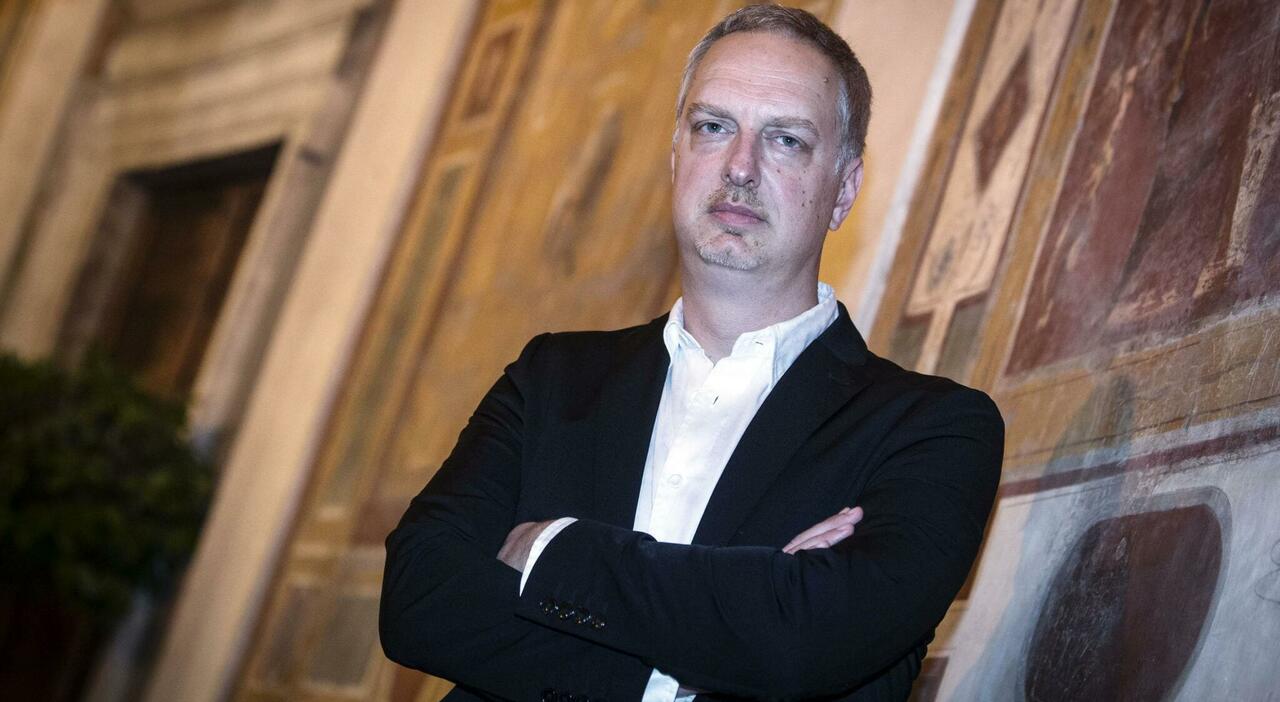Saturday 20 April 2024, 12:00 - Last updated: 12:14
“I dedicate the victory to our grandparents and our fathers, who were first seduced and then oppressed by fascism, especially those among them who found the courage to fight it with arms. I would like to dedicate the award also to our children, with the hope that they do not have to relive what we experienced a hundred years ago, especially to my daughter Lucia,” so the writer Antonio Scurati, the author of M. The Son of the Century, after winning the Strega Prize in 2019.
Serena Bortone reports: “Scurati's monologue on April 25th on Raitre cancelled. The post on Instagram”
The Victory at the Strega
Ten years after his last defeat, Antonio Scurati dominates the Strega Prize with a lead of 101 votes over the runner-up, Benedetta Cibrario with The Noise of the World. A tome of 840 pages, which had sold 180 thousand copies and has become a theatrical show. For the Giunti team, it is the first victory at the Strega.
Fascism
Antonio Scurati is remembered for an interview in il manifesto published on the print edition last April 23rd in which the writer stated that “giving voice to Mussolini serves to free ourselves from him”. “Most importantly, it means dealing with the repressed of the collective consciousness, fascism as one of the matrices of national identity and doing so through a new popular and inclusive narrative, according to the vocation of the novel form. I was driven by the conviction that, after the historical fall of the anti-fascist prejudice, a novel on Mussolini was possible and, therefore, necessary precisely to renew the reasons for anti-fascism”.
The Criticisms
Shortly after being released in bookstores, M. The Son of the Century had received a powerful criticism in the columns of Corriere della Sera by the historian Ernesto Galli della Loggia, who reproached him for some errors in names, dates, and quotes and for having “retouched history” with his novel. In turn, the writer had taken pen to paper and replied to the historian saying that “narrating is art, not exact science”. Thus, a brief quarrel ensued, in which Pierluigi Battista's annotations also interjected, and to which Galli della Loggia had then written again, definitively closing the matter, but not before stating that “creative license does not authorize betraying the truth of history”.
The Career
Of a Neapolitan mother and father from Cusano Milanino, he graduated in Philosophy at the University of Milan; he continued his studies at the École des hautes études en sciences sociales in Paris and completed his education by earning a PhD in Theory and Analysis of Text at the University of Bergamo. Adjunct professor in the Bergamo university, he coordinates the Study Center on the Languages of War and Violence. Also at the University of Bergamo, he teaches Theories and Techniques of Television Language. In 2005 he became a researcher in Cinema, Photography, Television and in 2008 he moved to the IULM University of Milan, where he is currently an associate professor and is involved in the Creative Writing Workshop and the Orality and Rhetoric Workshop in the undergraduate degrees. At the same university, he is also co-director of the master's program in writing Arts of Narrative, together with Gianni Canova, where he teaches courses dedicated to epic and narrative writing based on documents.
© ALL RIGHTS RESERVED
This article is automatically translated
